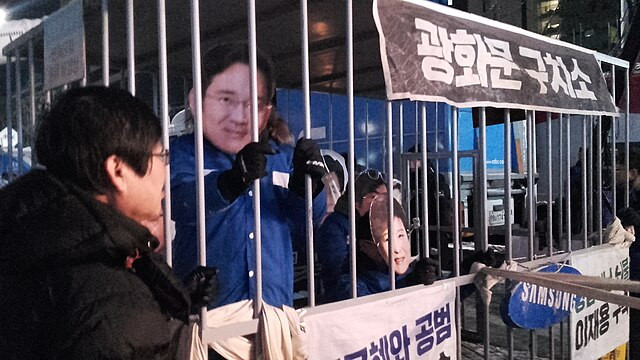South Korea's judiciary has once again focused attention on Samsung's leadership as prosecutors seek a five-year prison sentence for Jay Y. Lee, the chairman of Samsung Electronics. The legal battle, centered on allegations of misconduct during a 2015 merger of Samsung affiliates, has raised questions about Lee's ability to lead the tech giant amid growing global challenges.
On Monday, prosecutors argued in an appeals court that Lee and several former executives manipulated stock prices and committed accounting fraud to tighten Lee's control over the Samsung conglomerate. The controversial merger between Samsung C&T and Cheil Industries, they allege, prioritized Lee's succession interests at the expense of shareholders. Lee has consistently denied the allegations, maintaining that the merger adhered to established operational standards.
"The defendant damaged the capital market's foundation for the group's succession," prosecutors asserted in their closing arguments. They emphasized that granting leniency would set a harmful precedent for South Korea's chaebol system, which refers to family-controlled business empires that dominate the nation's economy. "The ruling in this case will serve as a reference point for restructuring chaebol companies and accounting in the future," they added.
This latest legal battle comes during a turbulent period for Samsung. The company, which leads the global market in memory chips and smartphones, faces declining profits, falling stock prices, and intensifying competition from rivals such as SK Hynix and TSMC. Adding to these challenges are potential trade disruptions under the incoming administration of U.S. President-elect Donald Trump. Samsung shares have already dropped more than 25% this year.
In his final statement to the court, Lee acknowledged Samsung's difficulties and vowed to navigate the company through its current challenges. "I am fully aware that there are grave concerns about the future of Samsung recently," he said. "The reality that we faced is challenging more than ever." Lee pleaded with the court to grant him an opportunity to reinvent Samsung, promising to steer the company toward recovery.
The trial has significant implications not only for Samsung but also for South Korea's corporate governance and economic stability. Prosecutors view the case as a litmus test for chaebol accountability, underscoring its importance in setting future standards for corporate restructuring and transparency.
Lee's legal troubles are not new. In 2020, he and other executives were indicted on charges related to the same 2015 merger. Prosecutors accused the group of inflating stock prices and engaging in fraudulent accounting at Samsung Biologics, a subsidiary in which Cheil Industries held substantial stakes. They argue that these actions were part of a strategy to solidify Lee's control over the conglomerate following his father's incapacitation due to a heart attack in 2014.
Despite these allegations, a lower court acquitted Lee earlier this year of accounting fraud and stock manipulation. Prosecutors, dissatisfied with the verdict, filed an appeal, with a decision expected early next year. If the appellate court upholds the acquittal, it could provide Lee with the stability needed to address Samsung's current challenges.






